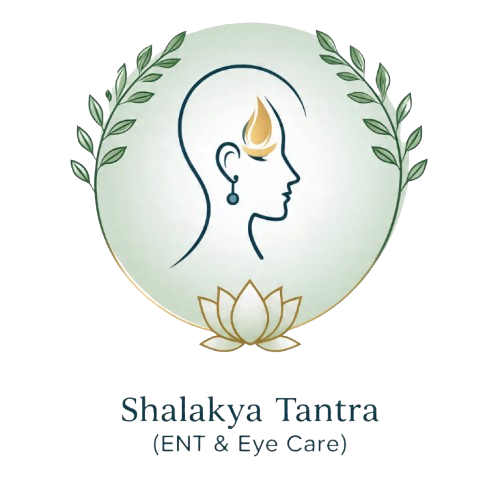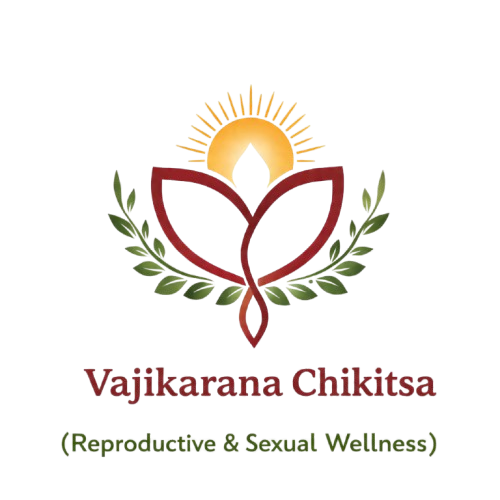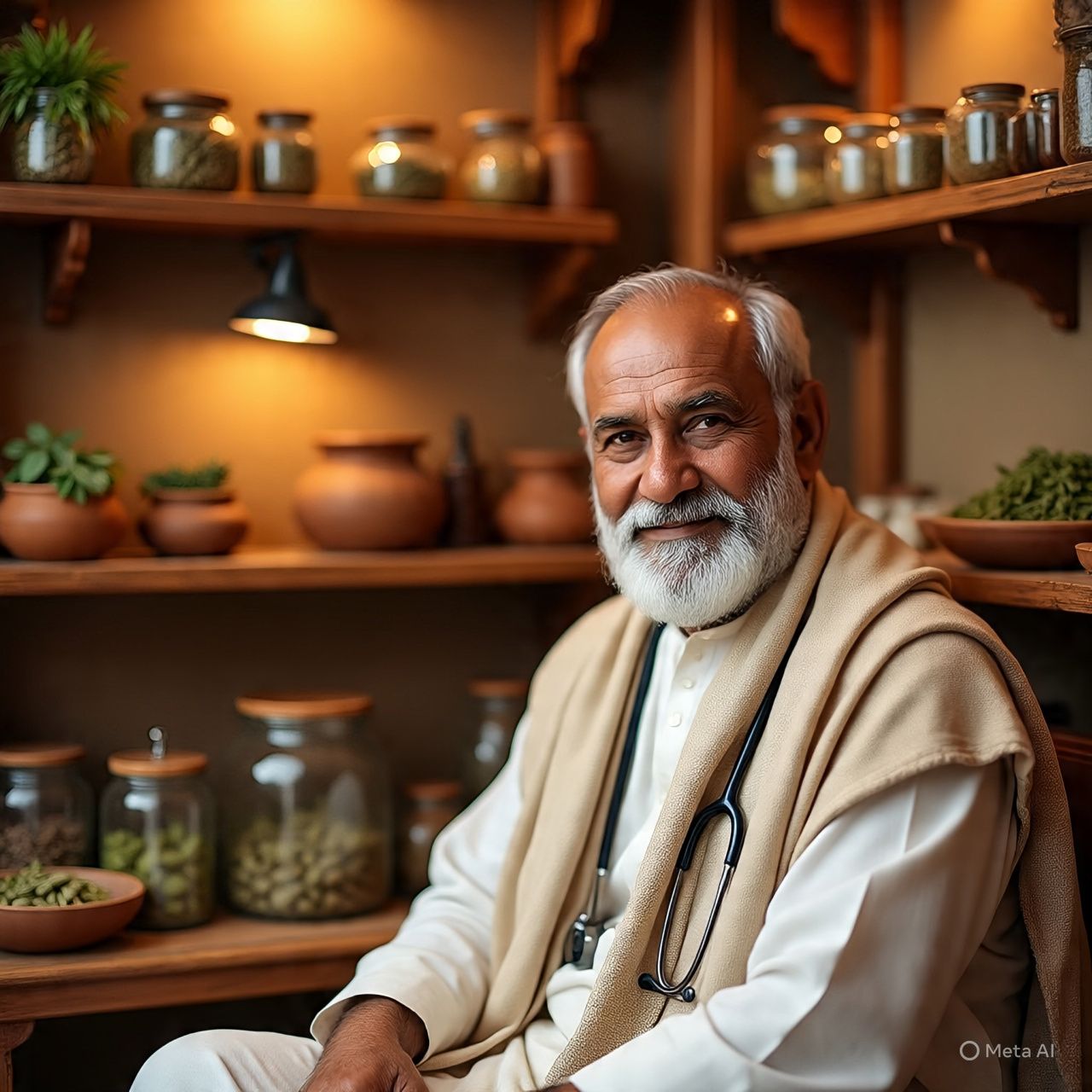HEALTH FACILITIES
Explore Ayurvedic Chikitsa List
“Ayurveda teaches that true health is not merely freedom from disease, but a balanced harmony of body, mind, and soul.”
“संतुलितं शरीरं मनः आत्मा च स्वास्थ्यं भवति।”

Kaya Chikitsa (Internal Medicine)
Deals with the treatment of general diseases related to the body, metabolism, and internal organs.
Learn More 

Panchakarma Chikitsa (Detoxification & Rejuvenation)
Focus: Cleansing & balancing doshas.
Includes Vamana, Virechana, Basti, Nasya, Raktamokshana.
Helps in detox, immunity boost, rejuvenation, stress relief.
Learn More 

Shalakya Tantra (ENT & Eye Care)
Focus: Eye, ear, nose, throat, and oral health.
Treats sinusitis, eye disorders, glaucoma, migraine, dental problems, hearing loss.
Learn More

Shalya Tantra (Surgery & Trauma Care)
Focus: Surgical & emergency care (traditional and minor surgeries).
Manages wounds, fractures, kidney stones, piles, abscesses.
Learn More 

Rasayana Chikitsa (Rejuvenation & Immunity)
Focus: Longevity, anti-aging, immunity.
Uses herbs like Ashwagandha, Amla, Brahmi, Shilajit.
Helpful for general weakness, memory, vitality, immunity.
Learn More 

Vajikarana Chikitsa (Reproductive & Sexual Wellness)
Focus: Fertility, sexual health & vitality.
Treats infertility, erectile dysfunction, premature ejaculation, low libido.
Learn More 

24/7 Emergency Services
CALL US NOW :
7042352006
7428320027
Find The Best Doctor You Need
Tristique, itaque irure magnis curabitur.


REGARDING US
We Are Here To Hear & Heal Your Health Problems
“At Navkalp Ayurved, we are here to hear your health concerns with compassion and heal them with the timeless wisdom of Ayurveda. We believe that every ailment has a root cause, and true wellness comes from restoring the balance of body, mind, and soul. Through personalized Ayurvedic consultations, herbal medicines, and holistic therapies, we guide you on a natural path to recovery, vitality, and inner harmony. Your health is our commitment, and your well-being is our purpose.”

Authentic Ayurvedic Healing

Holistic Care

We Have Professionals In Health.

Natural & Safe Remedies
32
YEARS
OF EXPERIENCE

Watch Videos

OUR SERVICES / FEATURES
Unmatched Excellence Health Care Services & Features !
Dolor voluptatibus augue lorem perspiciatis, odio eveniet facilisi. Illum vulputate scelerisque sagittis quae nostra nesciunt possimus ipsum augue optio eleifend. Blanditiis, nesciunt adipisci quasi, fames.

Health Care Certified
At Navkalp Ayurved, we take pride in being a health care certified Ayurvedic clinic, ensuring that all treatments, medicines, and therapies meet high standards of safety, quality, and efficacy. Certification reflects our commitment to professional, ethical, and reliable healthcare services.
Learn More

Skilled & Qualified Doctors
At Navkalp Ayurved, our team of skilled and qualified Ayurvedic doctors is dedicated to providing safe, effective, and personalized healthcare.
Learn More 

Best Ayurvedic Treatment
At Navkalp Ayurved, we offer the best Ayurvedic treatments that combine ancient wisdom with modern needs to promote holistic health. Our approach focuses on treating the root cause of illness, restoring balance between the body, mind, and soul, and enhancing overall vitality.
Learn More 
FAST SOLUTION
4 Easy Simple Phases And Get Your Solution

Make Appointment
cheduling an appointment with our clinic is quick and convenient. By making an appointment, you ensure that you receive personalized attention from our expert Ayurvedic doctors without waiting.

Check Submit
The Check / Submit feature allows users to review and send their information securely. Whether it’s a health query, appointment request, or feedback form, this function ensures that your data reaches Navkalp Ayurved safely and accurately.

Make To Doctor
The Make to Doctor feature allows patients to connect directly with an Ayurvedic doctor at Navkalp Ayurved for consultation. Whether you have a health concern, need guidance on treatment, or want advice on lifestyle and herbal remedies, this feature ensures your request reaches the doctor promptly.

Enjoy Your Life
At Navkalp Ayurved, we believe that true wellness is the foundation of a happy and fulfilling life. Enjoy Your Life is more than a tagline—it’s a philosophy that encourages you to live with balance, vitality, and inner harmony.
Meet Our Doctor

ORTHOPEDIST
Dr. Sanjay Tyagi
Dr. Sanjay Tyagi is a dedicated and experienced Ayurvedic practitioner committed to promoting natural healing and holistic wellness. With deep knowledge of classical Ayurveda and modern lifestyle needs, he specializes in treating chronic diseases, lifestyle disorders, digestive issues, liver health, sexual wellness, and immunity-related conditions.

15+
AWARD ACHIEVED

50k+
SATISFIED PATIENTS

750+
Hospitals Room

450+
Qualified Doctors & Staff

CALL TO ACTION
At Navkalp Ayurved, we harness the power of Ayurveda to help our patients achieve complete wellness, prevent diseases, and lead life with energy, clarity, and vitality.
Ayurveda, the ancient science of life, is more than just a system of medicine—it is a holistic approach to health and well-being. The power of Ayurveda lies in its ability to treat the root cause of illness, rather than just alleviating symptoms, by restoring balance between the body, mind, and soul.
OR CALL: +917042352006 / +917428320027

“Excepturi eleifend platea? quas Repelle ornare? Opcursus emw, senectus labore, quas em.”

Edwatd Reic
Patient

“Excepturi eleifend platea? quas Repelle ornare? Opcursus emw, senectus labore, quas em.”

Jenny Wilson
Patient

“Excepturi eleifend platea? quas Repelle ornare? Opcursus emw, senectus labore, quas em.”

Alison Grey
Patient

“Excepturi eleifend platea? quas Repelle ornare? Opcursus emw, senectus labore, quas em.”

William Hobb
Patient

PATIENT ' S TESTIMONIALS
Positive Review & Appreciated By Happy Patient ' s
Rhoncus mi tempora hac quasi, excepturi consectetur voluptatem. Placerat, expedita imperdiet atque platea aenean anim excepteur phasellus, facilis corporis.
ARTICLES & ADVICE
Checkout Our Most Recent Blogs And Insights
-

Nav Kalp Ayurved Rasashala
|
B-135, A- Block, Ashok Nagar, Shahdara, Delhi, 110093
 7042352006
7042352006 Admin@navkalpayurved.com
Admin@navkalpayurved.com +917303418184
+917303418184



Leave a Reply